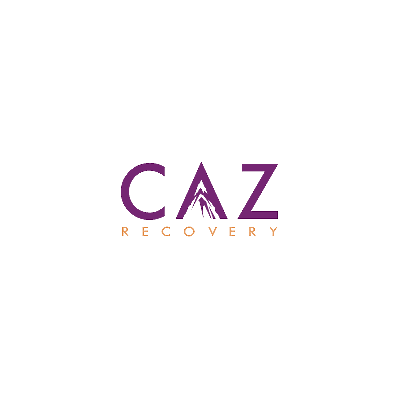Description
Cazenovia Recovery Systems, Inc. started as the dream of Bill O’Connor, a man with a vision and a heart of gold. He wanted to establish a movement in South Buffalo to help alcoholics get sober and return to work and their families. With the rigorous intent to obtain a shelter for adult men who suffer from alcoholism, he organized a rent agreement with the owner of a former nursing home at 486 North Legion Drive in Buffalo, New York. This agreement continued until the owner lost the building to the City of Buffalo for back taxes. The building was purchased through city auction by Edward Cottrell.
Mr. O’Connor then found a need to put together a group of community members to assist him in the enhancement of his vision. That group today is the Board of Directors, who in 1980 established a nonprofit agency called Friends of Cazenovia Manor, Inc. At this point, Bill O’Connor and the Board of Directors entered into a purchase agreement with Mr. Cottrell to purchase 486 North Legion Drive as the first residential program for men with alcohol dependence in the Buffalo area. Today, that site serves as Cazenovia Manor, our agency’s oldest program.
When Bill O’Connor retired, the Board hired Ronald T. Rycroft as Executive Director in 1983. Mr. Rycroft’s commitment to assist men with alcohol dependency led to steady expansion and growth of the agency. In 1989, Cazenovia Recovery launched its Supportive Living Program, and the program’s first apartment was on Macamley Street in Buffalo. Soon after, ground was broken in Eden, New York for what would become the first recovery care home in New York State—Turning Point House, a 21-bed intensive residential rehabilitation facility for men with substance-related disorders. The Supportive Living Program grew to include homes and apartments throughout Erie County.
Bill O’Connor’s dream coupled with Ron Rycroft’s dedication resulted in the creation of a community residence, the 16-bed New Beginnings, founded in 1992 in northwest Buffalo for men in recovery who also are homeless. After Mr. Rycroft’s untimely death that year, longtime staff member Dennis C. Fink was appointed Executive Director. Mr. Fink’s tenure is notable for his emphasis on enhancing quality across all of the agency’s programs.
The agency’s current CEO, Suzanne L. Bissonette, J.D., joined the agency as Deputy Director in 1997. Under her leadership, the organization has continued to grow to accommodate the community’s needs.
Continued expansion (2000s)
In 2004, the agency opened Visions Place specifically for homeless people in need of treatment for comorbid mental illness and substance use disorders.
Their housing program began in 2005. Since its inception, it has helped hundreds of people recover through numerous initiatives by providing supported apartments in Erie and Niagara counties.
In 2010, Cazenovia Recovery built a 24-unit residential development accessible to low income individuals and families. Amherst Station Apartments is located in north Buffalo in a green building designed with environmental considerations in mind. Each apartment is equipped with energy-saving appliances.
The agency reached out to military veterans in need by creating an 18-bed facility, Liberty Hall, which opened in 2011 on the grounds of the Veterans Administration Medical Center in Batavia, New York. The temporary shelter catered for homeless veterans with substance use disorders. Cazenovia Recovery also helped build a second veterans facility, Cadence Square, which includes a community housing development, a life support program, and individual apartments on the VA Medical Center campus in Canandaigua, New York.
A Major Provider (mid-2010s)
In 2014, the agency acquired Ivy House, which served men; Casa Di Vita, which serves women; and additional Supportive Living beds from an agency in Buffalo that ceased operations.
The following year brought additional changes to the agency in that Visions Place, Ivy House, and New Beginnings combined to create Unity House. This OASAS-licensed community residence serves men in recovery who are homeless or at risk for homelessness. It opened in the building that once housed Visions Place. The name “Unity House” was created by Ron Corpening, an agency employee, who wanted to capture the new program’s spirit in uniting people and programs together.
The agency grew by its largest amount on January 1, 2016 when it assumed the operations of programs formerly managed by Fellowship House, Inc., a residential services provider to individuals in recovery in Niagara County. Cazenovia Recovery began operating Madonna House, a program for women and women with children; Somerset House and Sundram Manor, Community Residences for men and women in Appleton and Niagara Falls, respectively; and a Supportive Living program in Niagara County.
The agency continued to evolve and adapt to substantial changes in the substance use and behavioral healthcare fields. In 2018, we converted three of our programs to an integrated new element of care developed by the New York State Office of Alcoholism and Substance Abuse Services. Rehabilitation, which offers many integrated treatment and service supports onsite, is now being provided at Cazenovia Manor, Madonna House, and Turning Point House. Liberty Hall also closed that year due to the aforementioned changes occurring throughout the field.
Now a major partner in recovery throughout Western New York, Cazenovia Recovery Systems offers choice and critical services to individuals who need it most.























